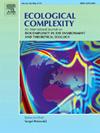Accelerating ecosystem monitoring through computer vision with deep metric learning
IF 3.1
3区 环境科学与生态学
Q2 ECOLOGY
引用次数: 0
Abstract
Significant progress has been made in the application of deep learning models to ecosystem monitoring. Deep learning has opened up new opportunities in the interpretation of ecological data, such as detecting and identifying objects in images and acoustic monitoring analysis. However, these have created new challenges, such as the need to further improve the efficiency of data processing due to the increasing volume of data, the need for more advanced feature extraction methods due to the complexity of data characteristics, and limitations of available annotated data. In this study, we focused on deep metric learning as a new application for environmental observation data to overcome these challenges. The extraction of features such as patterns and changes from large and complex environmental observation data using a deep metric learning approach may provide new opportunities for monitoring ecosystems experiencing unprecedented loads from climate change and human activities. While these methods demonstrate the potential of deep metric learning for flora and fauna and various datasets, they also suggest challenges to overcome, such as the need for more valid training datasets, diverse data collection, training time proportional to the data volume, and the identification of unknown classes. We expect that deep metric learning will be a powerful tool for various ecosystem monitoring systems, from remote sensing of wide-area data to ecological data obtained through field surveys.
通过深度度量学习的计算机视觉加速生态系统监测
深度学习模型在生态系统监测中的应用取得了重大进展。深度学习为解释生态数据开辟了新的机会,例如检测和识别图像中的物体以及声学监测分析。然而,这些都带来了新的挑战,例如由于数据量的增加需要进一步提高数据处理的效率,由于数据特征的复杂性需要更先进的特征提取方法,以及可用的注释数据的局限性。在本研究中,我们将深度度量学习作为一种新的环境观测数据应用来克服这些挑战。利用深度度量学习方法从大型和复杂的环境观测数据中提取模式和变化等特征,可能为监测遭受气候变化和人类活动前所未有负荷的生态系统提供新的机会。虽然这些方法展示了动植物和各种数据集的深度度量学习的潜力,但它们也提出了需要克服的挑战,例如需要更有效的训练数据集,多样化的数据收集,与数据量成比例的训练时间,以及未知类别的识别。我们期望深度度量学习将成为各种生态系统监测系统的强大工具,从广域数据的遥感到通过实地调查获得的生态数据。
本文章由计算机程序翻译,如有差异,请以英文原文为准。
求助全文
约1分钟内获得全文
求助全文
来源期刊

Ecological Complexity
环境科学-生态学
CiteScore
7.10
自引率
0.00%
发文量
24
审稿时长
3 months
期刊介绍:
Ecological Complexity is an international journal devoted to the publication of high quality, peer-reviewed articles on all aspects of biocomplexity in the environment, theoretical ecology, and special issues on topics of current interest. The scope of the journal is wide and interdisciplinary with an integrated and quantitative approach. The journal particularly encourages submission of papers that integrate natural and social processes at appropriately broad spatio-temporal scales.
Ecological Complexity will publish research into the following areas:
• All aspects of biocomplexity in the environment and theoretical ecology
• Ecosystems and biospheres as complex adaptive systems
• Self-organization of spatially extended ecosystems
• Emergent properties and structures of complex ecosystems
• Ecological pattern formation in space and time
• The role of biophysical constraints and evolutionary attractors on species assemblages
• Ecological scaling (scale invariance, scale covariance and across scale dynamics), allometry, and hierarchy theory
• Ecological topology and networks
• Studies towards an ecology of complex systems
• Complex systems approaches for the study of dynamic human-environment interactions
• Using knowledge of nonlinear phenomena to better guide policy development for adaptation strategies and mitigation to environmental change
• New tools and methods for studying ecological complexity
 求助内容:
求助内容: 应助结果提醒方式:
应助结果提醒方式:


